|
1 High Street / 1 Week Street
Maidstone
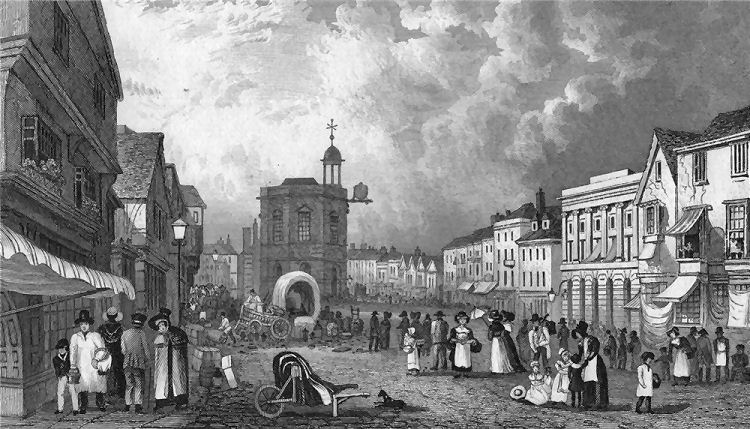
Above engraving, 1829, showing Market Day in the High Street, Jennifer
Salfinger who kindly sent it says she things the building far right with
sloping roofs is the Red Lion. |
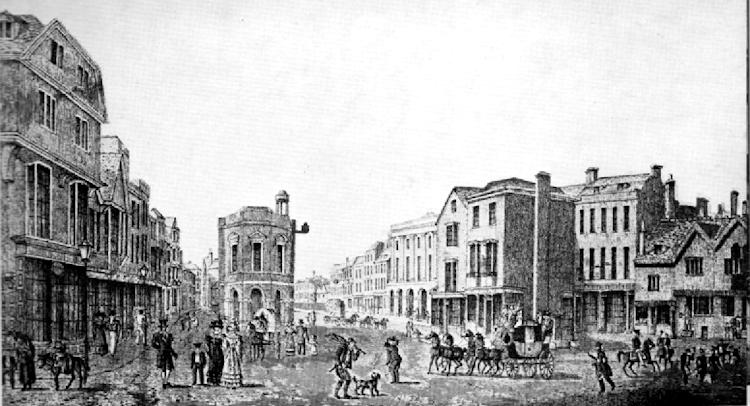
Above print, date unknown. |
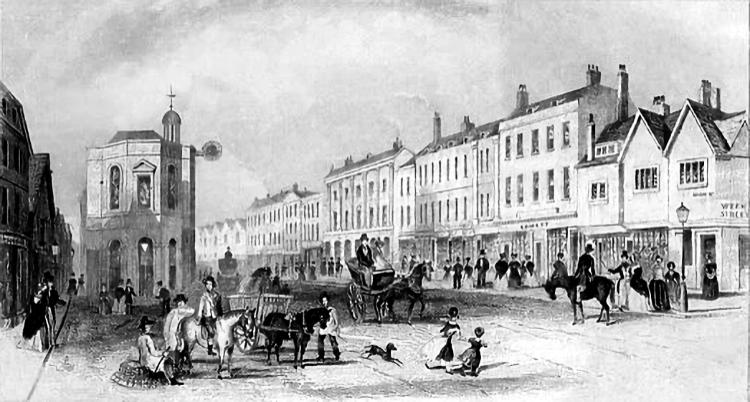
Above engraving, circa 1835. |
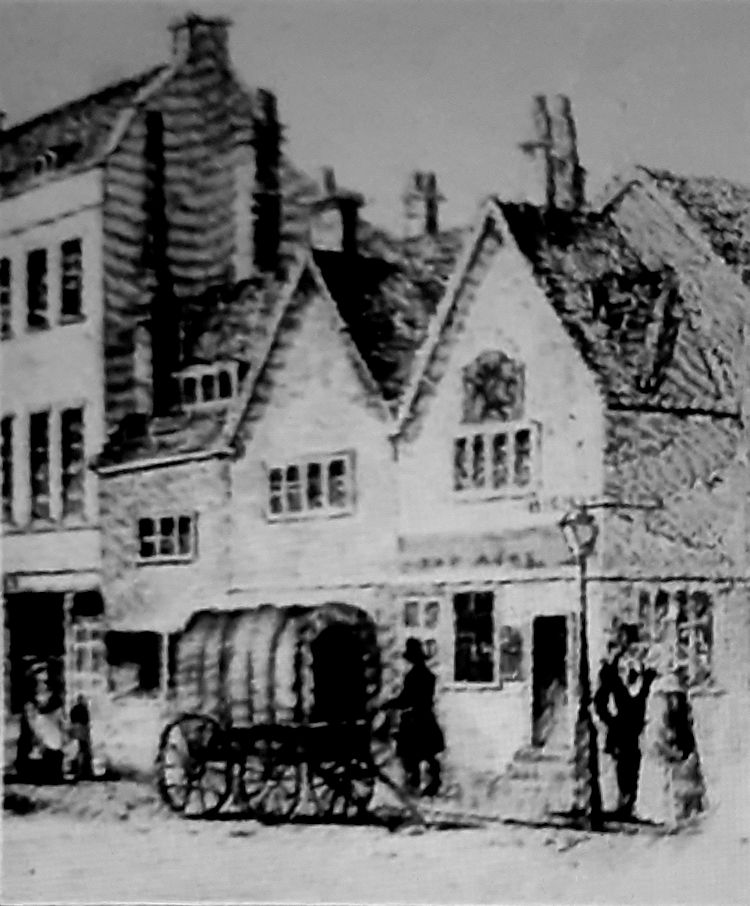
Above print, date unknown. |

Above print, date unknown. "Red Lion" building right. |
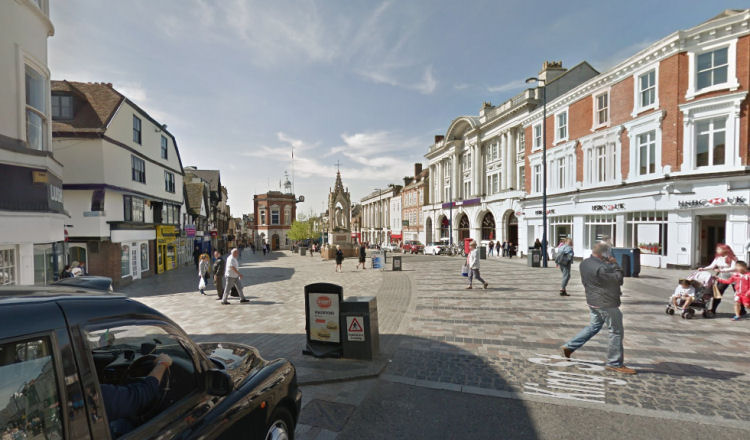
Above Google image April 2017. Sowing comparable shot. |
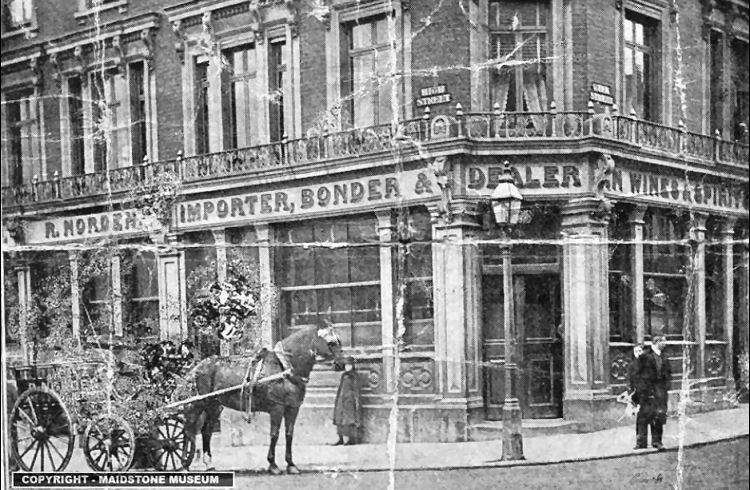
Above photo, 1890, by kind permission Roy Moore,
http://www.kentphotoarchive.com. |

Above postcard, date unknown. |

Above photo, circ1 1960. |
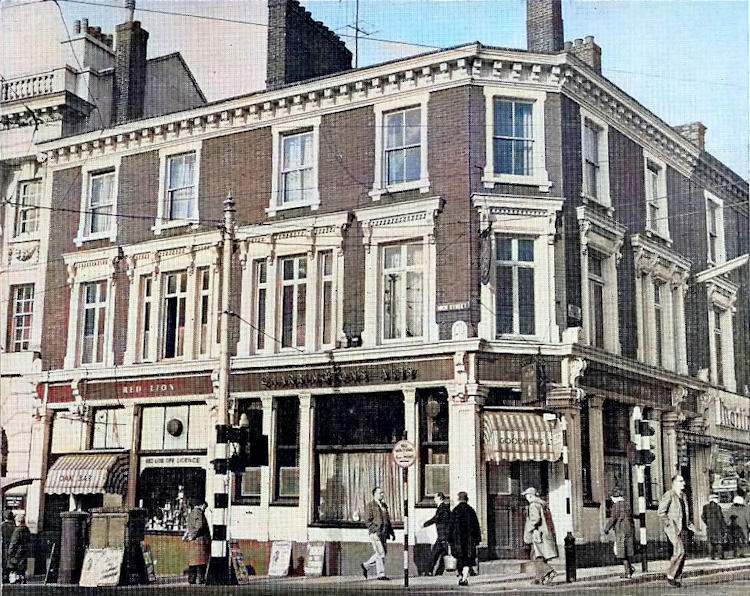
Above showing a coloured version of above. |
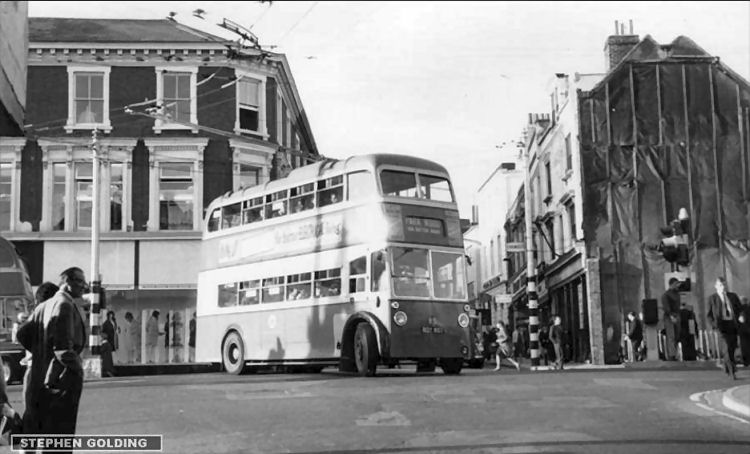
Above photo, date unknown, by kind permission Roy Moore,
http://www.kentphotoarchive.com. |
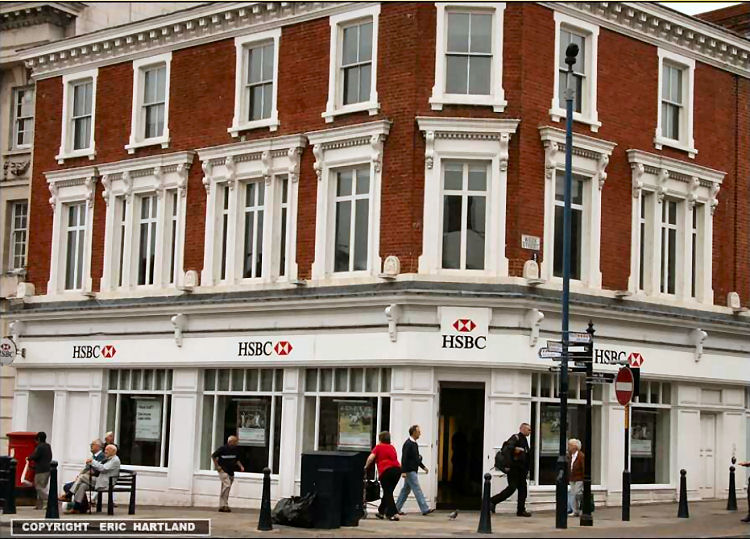
Above photo 2017, showing the site of the former Red Lion 2017. Kindly
supplied by Eric Hartland. |
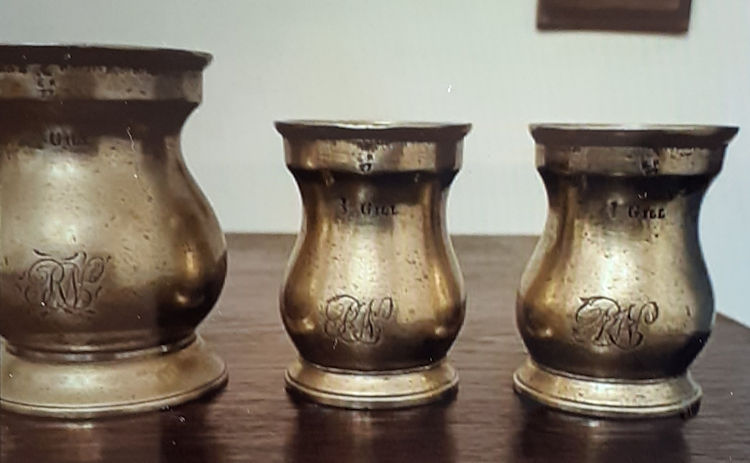
Red Lion pewter mugs. |
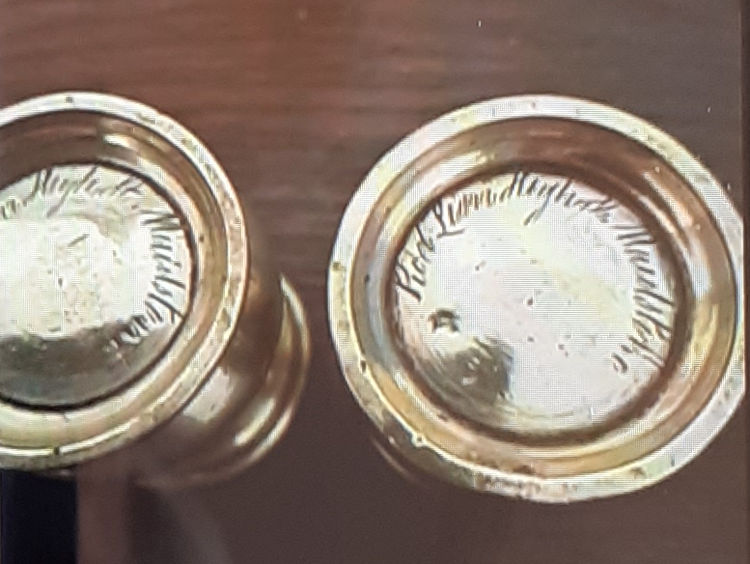
Red Lion pewter mugs. |
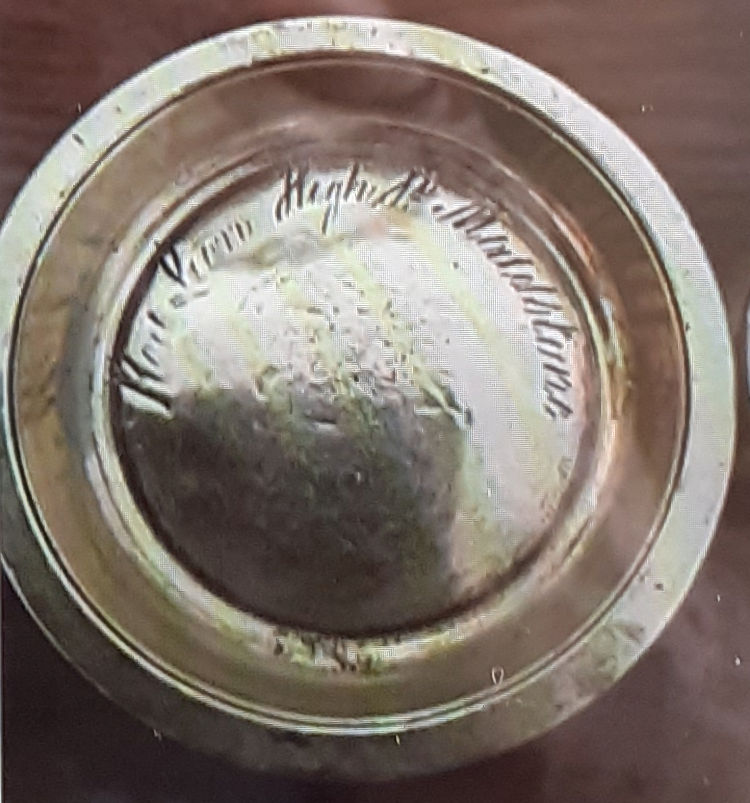
Red Lion pewter mugs. |
In a listing of 1648 it was situated on the corner of the High and Week
Street, unfortunately original demolished in 1857.
It was also mentioned in the song, "The Maidstone Landlords" in 1798.
The building is thought to have been mentioned in Dickens Picckwick
Papers as the "Blue Lion," Muggleton.
|
From the Kent Herald, 2 November 1826.
On Thursday last, H. Kipping, an officer of Maidstone, apprehended at the "Red
Lion" a woman and man answering the description given of Mary Ayers and her
companion, who are suspected of having been concerned in the late dreadful
murder at Fetcham. There was much prevarication in the separate accounts they
gave of themselves, but they have since been discharged, it being ascertained
that they were not the persons suspected.
|
|
South Eastern Gazette 06 December 1836.
MAIDSTONE POLICE.
John Wood was charged with having assaulted Robert Mitchell, the
landlord of the "Red Lion" public-house, in this town.
It appeared that the complainant had on several occasions refused to
admit Wood (whom he knew to be a notoriously bad character) into his
house. On the evening of Sunday the 27th Nov. he again came in, and the
complainant immediately took hold of him and put him out, when Wood
struck him with a stick which he had in his hand, and ran away, but was
soon overtaken and given in charge to the police.
The defendant was convicted of the assault, and fined 10s. and the
costs, and in default of payment was committed to gaol for ten days.
The Magistrates commended Mr. Mitchell for his determination to exclude
such characters from his house, and hoped his conduct would be followed
by other publicans in the town.
|
|
Kentish Weekly Post or Canterbury Journal, 13 March, 1838.
Awfully sudden death.
On Monday evening and inquest was held at
the "Queen Ann" public-house, Maidstone, before Mr
Dally, coroner, on the
body of Mr Robert Mitchell, landlord of the "Red Lion" public house, in
this town, who died suddenly that morning.
After a few
introductory remarks by the coroner, the jury proceeded to view the
body, and then they returned the following witnesses were examined.
Thomas Parks, who is a footman to Colonel Jones, of Hayle-place, deposed
that he had known deceased, who was 36 years of age, about 5 years. A year ago he had a severe illness, since which
his health has
been impaired, and he had been occasionally subject to fits.
Witness was sitting on the box of his master's carriage, which was in the
procession of the friends of Sir R Filmer, on its way to Penenden Heath,
when he saw the deceased near the "Queen Anne," and asked him to get up
behind, which he did. Deceased said that he have been running after them,
and was short of breath, at the same time place in his hand on his chest.
After they had proceeded a short distance from turnpike gate,
some person called out to the coachman to stop, as there was a person
behind in a fit. He did so, and witness got down and saw the
deceased leaning on the spring of the carriage apparently fainting.
Witness and another person took him down, and witness held him in his
arms, when he groaned several times, and foaming at the mouth; he was
then taken to the "Queen Ann" public house, and
attended by a medical gentleman.
James Joseph power, assistant to Mr Sanders, surgeon, suppose
that about 10:30 o'clock in the morning, he was passing the "Queen
Ann,"
and was informed that the man was in a fit and short distance up the
road; he went to the spot, and felt the pulse of the deceased, but
could not find any pulsation. He directed him to be taken to the
public house, when the witness endeavoured to administer brandy and
water, but the deceased was unable to swallow, he also opened two veins in the
arm, and applied friction to the region of the heart, but without producing any
effect. Witness believe that deceased had been seized with a fit, which
had been accelerated by excitement at the time. He was of opinions
that the deceased died from a rupture of one of the blood vessels
contiguous to the heart, or the heart itself, which would have produced
death more suddenly than apoplexy.
The jury Returned I heard it that the
deceased "Died by the visitation of God."
|
|
South Eastern Gazette, 8 November 1853.
Friday. (Before H. W. Joy, Esq., and C. Ellis, Esq.)
The newly-elected Town-councillors were this morning duly sworn into
office.
John Dale, waiter, was charged with felony:— Wm. Shirley, who keeps
the "Star Tap," stated that on Sunday night he locked up his
premises at about half-past ten o’clock. There was then a gun
standing in the corner of his living-room. The gun produced was the
same, which he had had for the last twenty years. His son came down
about half-past six o’clock the next morning, and found one of the
windows partly open. He missed the gun, which was in a case, on
Tuesday. The window opened by a slide into the Star-yard, and as the
fastenings were worn it was not made secure. Had known the prisoner
many years. He (prisoner) was often about the house and knew where
the gun was kept.
By prisoner:— You had cleaned the gun many times.
Prosecutor’s son stated that he came down stairs on Monday morning
at about twenty minutes to seven o’clock, and found the window of
the room in which the gun was kept partly open.
William Bridgland, landlord of the "Red Lion," stated that the
prisoner came into his house at about four o’clock on Monday
morning, and called for some coffee. Witness saw a gun behind the
settle, and took it up and examined it. About an hour afterwards
prisoner asked him if he had a charge of powder and shot to give
him. Witness said he had none, and prisoner then said he must stop
till the shops were open. Witness understood him that he was going
out shooting. He afterwards asked witness to take care of it, with a
small packet which he said contained silver, for a few minutes.
Witness took the gun into the bar, and on Wednesday gave it to
police-constable Russell.
Police-constable Russell deposed to receiving information of the gun
being missing on Tuesday evening, and on Wednesday morning obtained
it from the last witness. Afterwards took the prisoner into custody
and told him the charge, when he said it was his property and he had
got it to clean.
By prisoner:— You did not say the gun belonged to Mr. Shirley.
The prisoner said he took the gun on Sunday afternoon to clean, as
he had often done before, and was going to Rochester on Monday,
intending to return it when he came back. He took it into the "Red
Lion" and asked the landlord to take charge of it while he went to
book two places on the omnibus, and told him to take care of it as
it was a valuable one, and belonged to Mr. Shirley. This latter
assertion Bridgland denied.
The prisoner was remanded till Tuesday (to-day).
|
|
Local News on 11th December 1855.
At the Maidstone Police Court, Thomas Lamb, a bricklayer of Water Lane
was charged with having been found drunk and creating a disturbance in
the High Street on the evening of Saturday 2nd December. He denied being
drunk.
Mr Blundell stated that on Saturday night, about ten minutes to twelve,
while on Gabriel's Hill, he heard a cry of murder, which was found to
proceed from the "Red Lion," where the defendant's "housekeeper" was
screaming "murder" and creating a disturbance, she was taken to the
station house. The defendant, who was very drunk, was making a
disturbance in the house with two prostitutes, and after getting him out
of the house, as he still remained turbulent, he was being taken to the
station house, when he laid down on the way and refused to proceed. Mr
Kirby, formerly proprietor of the "Ship," then came up, pushed witness to
one side and offered to take Lamb home. Mr Blundell told Kirby not to
interfere, when he also became violent, hallooing to the people in the
street, disrespecting the attempt to take the prisoner to the station.
The disturbance was so great that the inhabitants looked out of their
windows. The defendant was locked up, but was discharged in the morning.
Mr J. Wood, assistant to Messrs Gurney and Haynes said he heard the
disturbance and on getting out of bed and looking out of the window, he
saw a man lying down and heard much bad language used. The police
appeared to have much trouble in getting the man to the station, but he
saw no unnecessary violence.
Policeman R. Sunnucks said that he heard the woman scream, when he
was some distance up Week Street. On hastening to the "Red Lion," he
found the woman there, very noisy and he desired to take her to the
station. He did so and on his return, he saw defendant in custody of the
superintendent, and refusing to go to the station. By desire of the
superintendent, he attempted to take the defendant up King Street, but
he resisted and he was then dragged along. When opposite Mr Headford's
shop, Mr Kirby came up and said "What do you want with this man. He has
done nothing." The superintendent by an opprobrious epithet, and with an
oath said he would appear against him on Tuesday. A cry of "shame" was
then set up by the people, which witness believed Kirby commenced.
Inspector Fancett said that, while in company with the
superintendent, hearing screams, they went to the "Red Lion," where the
woman was making a noise and she was taken to the station house. On
entering the "Red Lion" to ascertain the cause of the disturbance, Lamb
was there making a noise with two girls and he refused to leave. He was
ordered to be taken the station and used very bad language and refused
to go, and it was with great difficulty, he was at length locked up. The
defendant said in his defence, that he was discharged on Sunday morning,
and he wished to know why he was brought up on the charge. It was stated
by the superintendent, in reply, that Lamb had used a threat which
caused him to have the case, investigated by the magistrates.
Mr. Jesse Kirby stated he was half-way down Gabriel's Hill, he heard
a woman scream, when he returned to the top of the hill. He heard Mr
Blundell say "It's Lamb's wife. She is a drunken beast, take her to the
station." He believed the superintendent and a policeman went into the
"Red Lion" and Lamb was "pitched" out. A young man attempted to pick
Lamb up, but the superintendent said "Take him away to the station house
and I'll lock him up too." At the same time, fifty to one hundred people
assembled and most of them cried "shame" at the treatment Lamb received.
He believed Lamb was the worse for liquor and offered to take home, but
there were no cries of "murder" as stated by Mr. Blundell. He swore that
he did not come out of the "Castle,"
at a few minutes before 12 and there was no cry of murder until Blundell
and Fancett ordered the woman to be taken away, all the people screamed
shame after this occurred.
A man named Streeter, said he was in the "Red Lion" when some men
like navvies, shoved the "housekeeper" down in the passage, there was a
screaming noise, and in a few minutes, the police came in and the
landlord ordered the house to be cleared. Fancett told Lamb, he ought to
be at home in bed, and pushed him, and he fell in the street. A young
man said he knew Lamb, and was taking him away, but as they stopped in
the middle of the High Street, the officers, instead took Lamb to the
police station house.
After some consultation with the other magistrates, the mayor said
the bench had given the whole of the circumstances, great consideration
and had not the slightest hesitation in saying that the charge against
Lamb, was most clearly proved and other witnesses had admitted, he was
drunk. It was a most lamentable thing to see a man in his position
commit himself in such a way, and therefore, the sentence of the court
was that he pay a fine of ten shillings. If it had been proved in
evidence that the disturbance had been caused early on Sunday morning
instead of Saturday night, a heavier penalty would have been inflicted!
The fine was paid.
|
|
From the Kentish Gazette, 14 July 1857.
A Relic.
In excavating the soil for laying the foundation of the new
buildings at the site of the old "Red Lion," High-street, the
workmen discovered a few days ago an instrument of steel with a
wooden handle, in good preservation, although very rusty on the
surface. The opinion at first was that it had been a dagger, but on
being cleaned it was found to be a graving tool, and the interesting
fact is that Woollett, the celebrated engraver, was a pot-boy at the
"Turk’s Head," close
adjoining, at which place he gave the first proofs of his genius by
engraving on the pewter pots numerous Turk’s head as a mark of his
master’s property. The probability, therefore, is that the tool in
question belonged to, and was used by our native engraver, whose
works are too well known to require mention. This interesting relic
which at present is in the hands of Mr. A. Austin is, we are glad to
hear, to be deposited in the Charles’s Museum at Chillington House.
|
|
From the Maidstone Journal and Kentish Advertiser, Tuesday 14 July 1857.
A Maidstone relic.
In excavating the soil for laying the Foundation of
the new buildings at the site of the old "Red Lion," High Street, the
workmen discovered a few days ago and Instruments of Steel with a wooden
handle, in good preservation, although very rusty on the surface. The
opinion at first was that it had been a dagger, but on being cleaned it
was found to be a graving tool, and the interesting fact is that
Woolwich, the celebrated engraver, was a pot boy at the "Turks Head,"
close adjoining, but which place he gave the first proof of his genius by
engraving on the pewter pots numerous "Turks Head" as a mark of his
Master's property. The probability, therefore, is that the tool in
question belonged to, and was used by, our native engraver, whose works
are too well known to require mention. This interesting relic which at
present in the hands of Mr. Ambrose Austin is, we are glad to hear, to
be deposited in the Charles's Museum at Chillington house.
|
I am informed that this was called the Gin Palace at one time by locals
and had gigantic barrels stood in the saloon.
LICENSEE LIST
BULLARD/BULLAM John 1826-30+

TURNER John 1832+

MITCHELL Robert 1836-Mar/38 dec'd
MITCHELL Elizabeth 1840+
BRIGLAND William 1840+
HILLS T 1851+
BRIGLAND William 1853-55+
SMART Henry 1858+
SPOONER John Augustus Frederick 1867-70+

NORDEN Richard 1882-90+
WALLACE William 1911+ (also Wine and Spirit Dealer age 38 in 1911 ) )
https://pubwiki.co.uk/RedLion.shtml
http://www.closedpubs.co.uk/redlion.html
 From the Pigot's Directory 1828-29 From the Pigot's Directory 1828-29
 From the Pigot's Directory 1832-33-34 From the Pigot's Directory 1832-33-34
 Census Census
 From
the Post Office Directory 1867 From
the Post Office Directory 1867
|














